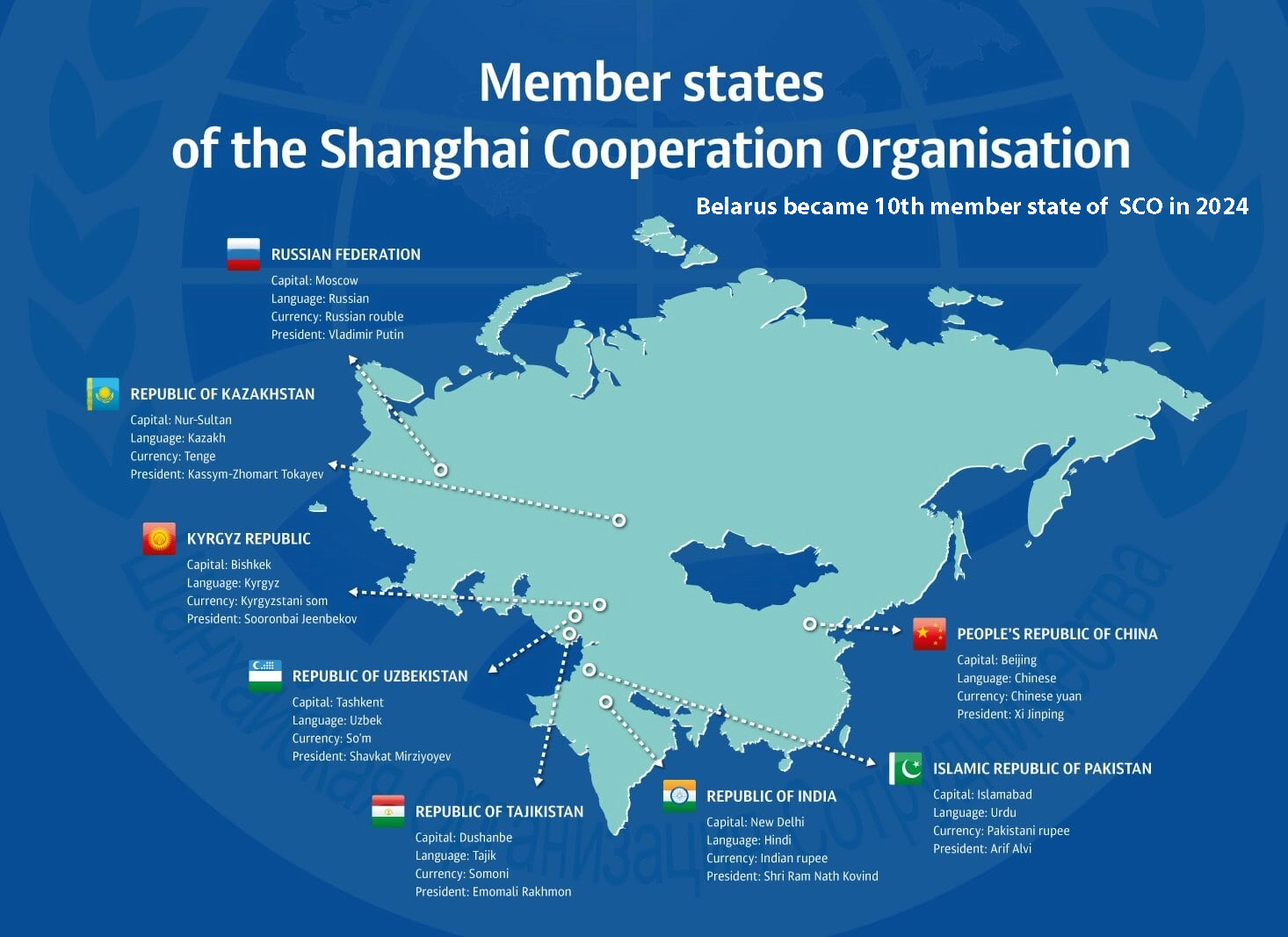-
02 Aug 2024
GS Paper 2
International Relations
Day 23: Discuss the aims and objectives of the Shanghai Cooperation Organization (SCO) and evaluate its significance for India. (150 words)
Approach
- Briefly introduce the Shanghai Cooperation Organization (SCO).
- Discuss the aims and objectives of the Shanghai Cooperation Organization.
- Evaluate its significance for India.
- Identify the Key Issues of the Organization.
- Conclude Suitably.
Introduction
The Shanghai Cooperation Organization is a permanent intergovernmental international organization established on June 15, 2001, in Shanghai (PRC). Before the inclusion of Belarus in 2024, it had nine members: India, Iran, Kazakhstan, China, Kyrgyzstan, Pakistan, Russia, Tajikistan, and Uzbekistan. SCO represents around 42% of the world population and 25% of the global GDP.
Aims and Objectives of SCO :
- to strengthen mutual trust, friendship and good-neighborliness between the Member States;
- to encourage the effective cooperation between the Member States in such spheres as politics, trade, economy, science and technology, culture, education, energy, transport, tourism, environmental protection, etc;
- to jointly ensure and maintain peace, security and stability in the region; and
- to promote a new democratic, fair and rational international political and economic international order.
- Internally, the SCO adheres to the "Shanghai spirit", namely, mutual trust, mutual benefit, equality, consultation, respect for diversity of civilizations and pursuit of common development; and externally, it upholds non-alignment, non-targeting at other countries or regions and the principle of openness.
Importance of SCO for India:
- Economic Cooperation:
- The SCO provides a platform for India to enhance economic cooperation with Central Asian countries, which have vast reserves of natural resources.
- India is seeking to increase its trade and investment ties with the SCO countries to diversify its economic partnerships.
- Energy Security:
- Central Asia has vast reserves of oil and gas, and India is looking to tap into these resources to enhance its energy security.
- The SCO provides a forum for India to engage with the energy-rich countries of Central Asia and explore opportunities for cooperation in the energy sector.
- The Samarkand Declaration, signed at the 22nd Summit, centralizes connectivity which is a priority for India, as well as energy and food security.
- Cultural Cooperation:
- The total Cultural Heritage of the SCO member states, observers and partners include 207 UNESCO World Heritage Sites.
- SCO member countries have decided to designate one city (from SCO member countries) as tourism and cultural capital every year under a rotating initiative.
- “Kashi” (Varanasi) has been designated as the first cultural capital of the SCO under this initiative.
- Counterterrorism:
- The SCO has a strong focus on counterterrorism cooperation.
- India, which has been a victim of terrorism, can benefit from the collective efforts of the organization to combat terrorism in the region.
Challenges in SCO :
- Geopolitical Tensions: Rivalries among member states and historical tensions can complicate cooperation and hinder the organization's ability to present a united front on regional issues.
- India and China over Border Issues: The land border issues between India and China are a complex mix of historical grievances, territorial claims, and strategic interests.
- India and Pakistan over Terrorism: Tensions between India and Pakistan, particularly concerning terrorism, create significant obstacles to collaboration and undermine collective security efforts within the SCO.
- China’s Rise:
- China’s rise is increasing the prospects for China’s emergence as the dominant force in inner Asia.
- This has led to external pressures from other regional powers, such as the United States, which has sought to contain China's rise and limit its influence in the region.
- Limited institutional mechanisms:
- While the SCO has a number of bodies, such as the Council of Heads of State, the Council of Ministers of Foreign Affairs, and the Council of National Coordinators, these bodies lack the formal decision-making and enforcement powers that are necessary for effective governance.
- SCO lacks a formal mechanism for resolving disputes between member states.
- Divergent Interests and Disagreements:
- The SCO includes member states with different political systems, economic models, and strategic priorities such as CPEC, border infrastructure projects etc., which can lead to internal conflicts and disagreements on issues such as economic cooperation and security.
- Limited geographical scope:
- The SCO's geographical focus is limited to Eurasia and neighboring regions, which restricts its ability to engage with global issues and challenges.
Conclusion
The Shanghai Cooperation Organization (SCO) must focus on strengthening political trust, enhancing economic cooperation, and addressing security challenges to maximize its potential. By promoting cultural exchanges and considering membership expansion, the SCO can solidify its role as a vital platform for regional stability and collaboration among member states.





